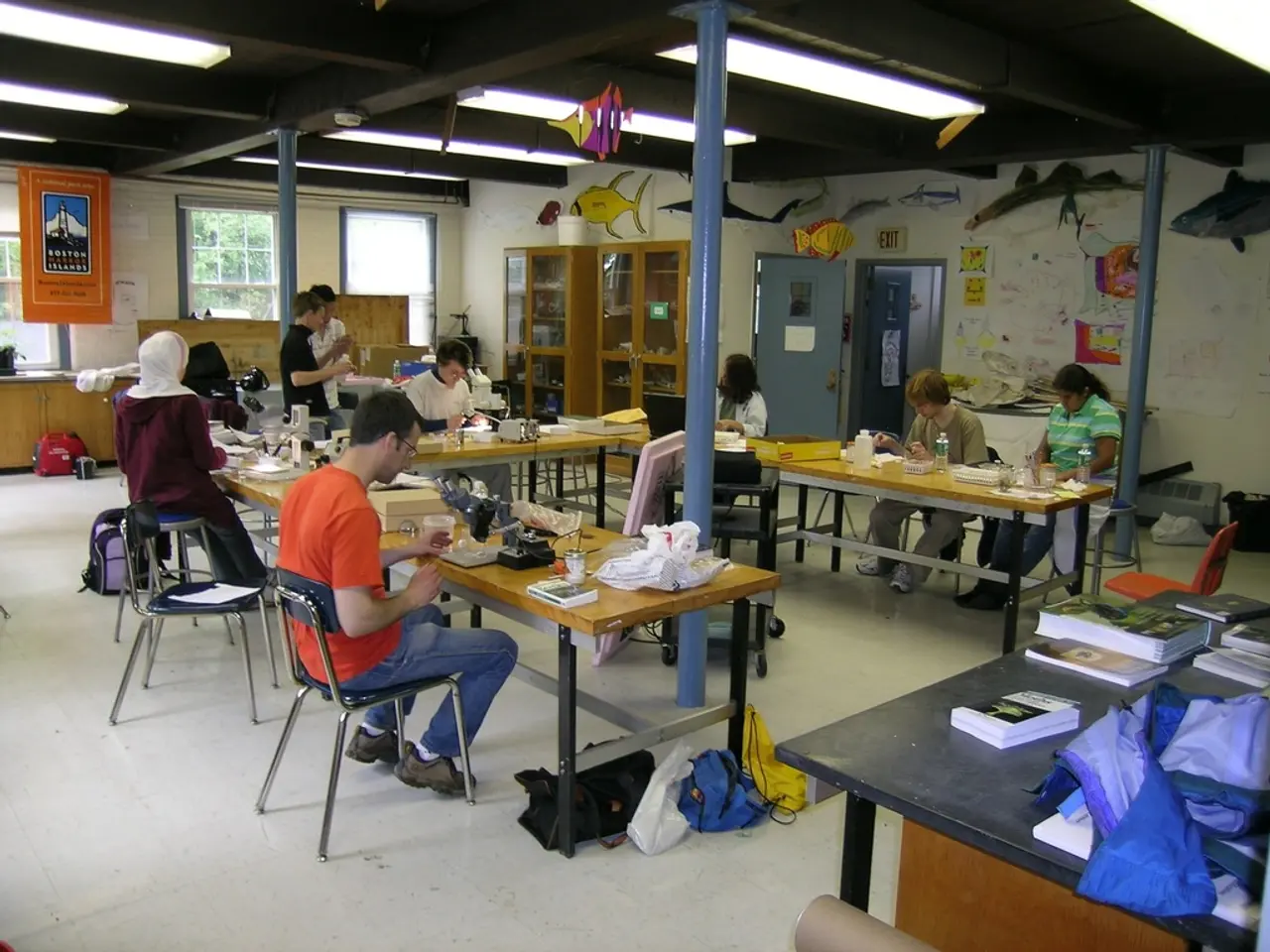Quick Guide: Cramming IB Computer Science in a Week
In the quest to excel in the International Baccalaureate (IB) Computer Science exam, a structured, active, and exam-focused approach is crucial. Here's a week-long study plan to help you cover essential topics, including computer fundamentals, networks, databases, machine learning, computational thinking, programming, Object-Oriented Programming (OOP), and abstract data types.
## The Structured Approach
| Day | Focus Areas | Activities | |-----|-------------|------------| | 1 | **Computer Fundamentals, Networks, Databases** | Review the basics of computing, networks, and databases—from hardware components and data representation to network topologies, protocols, and databases management systems. | | 2 | **Machine Learning, Computational Thinking** | Dive into machine learning and computational thinking—understand the principles, techniques, and strategies for problem-solving. | | 3 | **Programming, OOP** | Master the fundamentals of programming, control structures, functions, and OOP concepts like classes, objects, inheritance, polymorphism, and abstraction. | | 4 | **Abstract Data Types** | Focus on essential data structures such as lists, stacks, queues, trees, graphs, and hash tables. Understand their operations, applications, and differences. | | 5 | **Practice and Review (HL Only)** | For Higher Level (HL) students, Day 5 is dedicated to hands-on practice and review of abstract data types, followed by a comprehensive review of all topics covered in the week. | | 6 | **Past Papers and Practice** | Complete IB Computer Science past papers under timed conditions. Analyse IA examples and EE research approaches. | | 7 | **Weakness Addressing, Review, Exam Strategies** | Revisit weak topics, review key formulas, practice problem-solving, and refine exam techniques. |
## Study Techniques
- **Active Learning**: For each topic, combine reading, summarizing notes, and practicing exam-style questions. Use flashcards for definitions and formulas. - **Programming Practice**: Write small programs or scripts covering core constructs, OOP, and data structures. For OOP, create classes and simulate real-world scenarios. - **Concept Maps**: Draw diagrams for network architectures, database schemas, and algorithm flows. Visual aids help retention. - **Case Studies**: Apply machine learning and database knowledge to real-world scenarios (e.g., recommendation systems, fraud detection). - **Peer Teaching**: Explain concepts out loud or teach a study partner. This tests your understanding and identifies gaps. - **Tutoring**: Consider expert online IB Computer Science tutoring for clarifications on IA coding, EE research, and algorithm theory. - **Past Papers**: Prioritize IB-specific past papers to familiarize yourself with question formats and command terms. - **Exam Readiness**: In the last days, simulate exam conditions, practice time management, and review marking schemes.
## Resources
- **IB Specification Documents**: Focus on the official syllabus for your course level. - **IB Past Papers**: Use these for targeted practice and to understand examiners’ expectations. - **Online Tutors**: If you’re stuck, expert tutors can clarify concepts and exam strategies. - **Code Repositories**: Review and modify example programs for practice.
## Final Tips
- **Prioritize**: Focus on your weakest areas first, but ensure you cover all major topics. - **Breaks**: Study in focused 45–90 minute blocks with short breaks to maximize retention. - **Sleep and Nutrition**: Avoid all-nighters. Rest and good nutrition are crucial for memory consolidation.
By following this structured, active, and exam-focused approach, you can make significant progress in one week. Continuous practice, self-assessment, and targeted revision are key to maximizing your IB Computer Science exam performance.
Resources for learning include textbooks, online tutorials, crash courses, and coding platforms like Khan Academy, Codecademy, HackerRank, LeetCode, and Coursera. The new IB Computer Science syllabus includes topics in computer fundamentals, networks, databases, machine learning, computational thinking, programming, OOP, and abstract data types (HL Only).
In the realm of education-and-self-development, technology plays a crucial role, particularly in mock exams. Utilizing online resources, such as Khan Academy, Codecademy, HackerRank, LeetCode, and Coursera, one can enhance learning by practicing computer science topics like computer fundamentals, networks, databases, machine learning, computational thinking, programming, Object-Oriented Programming (OOP), and abstract data types through mock exams.




